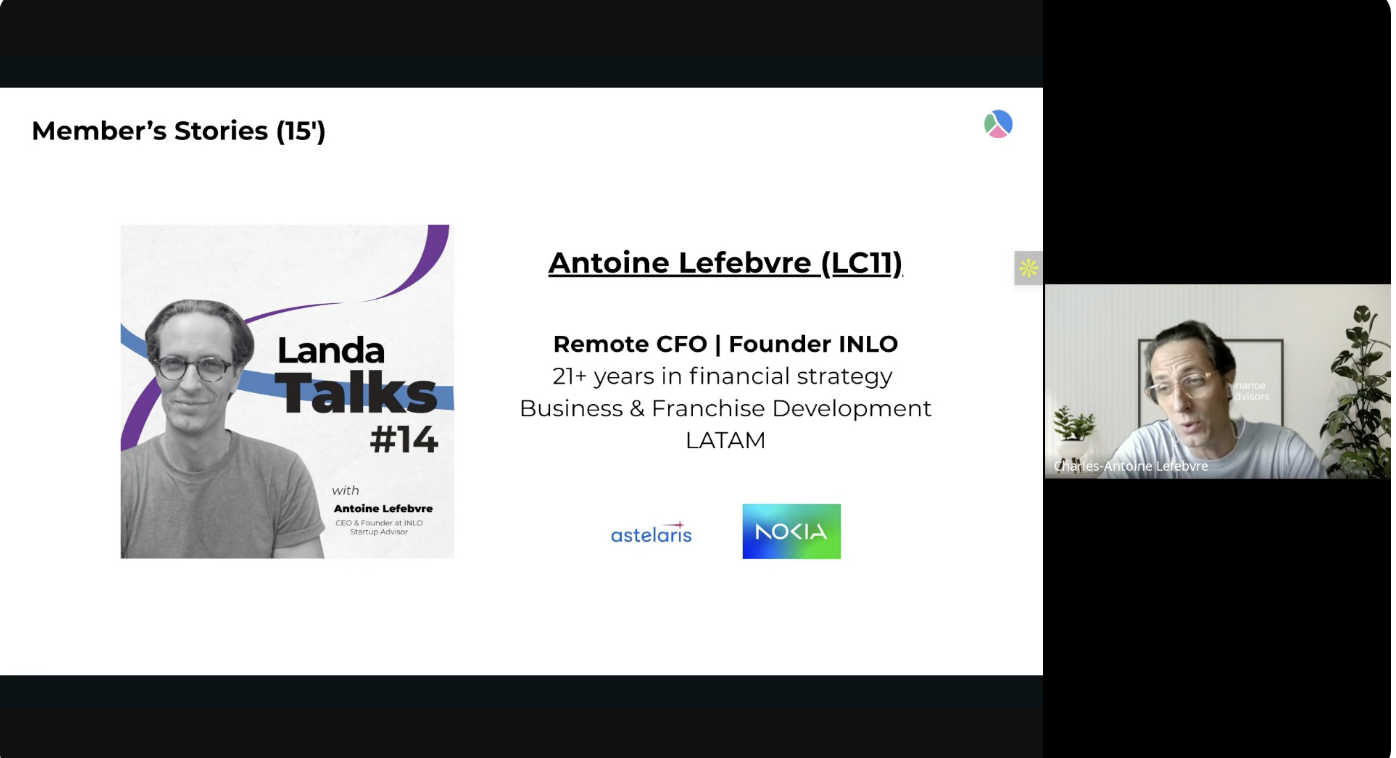In our latest Office Hours, Antoine Lefebvre (“Remote CFO”) shared how he built and scaled his consulting practice over the past two years. His focus: value-based pricing, client retention, and clarity in offers.
🚀 From Corporate to Independent
- 21–22 years of work experience → 15 in corporate, 6–7 in consulting.
- Went independent two years ago, branding himself as a Remote CFO.
- At the start, he didn’t define a narrow niche. Instead, he focused on identifying his best customers and building around them.
💰 Pricing Model & Evolution
- Charges a flat fee based on value and function, never by the hour.
- Tracks hours internally, but only for self-control and planning.
- Over two years, he has doubled recurring service prices.
- Initial pricing strategy:
- Desired monthly revenue ÷ Number of clients he could realistically manage.
📈 Growth & Retention
- Two factors drive his revenue growth:
- How much he charges per customer
- Retention
- Current average retention: 11 months.
- His first client is still with him after 2 years.
- Increasing fees became possible as he delivered more value and earned client confidence.
💭Participant Q&A Highlights
Hernán F → How did you find leverage and what resonated with clients?
- This came with experience.
- At first, he had to actively seek clients.
- Today, most come through referrals and inbound inquiries.
- Early strategy: reach out to contacts with the “Remote CFO” concept, highlighting value instead of hours.
Alejandro B→ How do you manage your time across multiple clients?
- Estimates available hours by subtracting time spent on branding, sales, and admin.
- Divides remaining “productive” hours by target number of clients.
- This forms the basis for his flat fee per client.
Nicolas V → Have you considered hiring staff to scale?
- Having managed employees before, he initially didn’t want to build another company.
- Now acknowledges the need for help (e.g., hiring for accounting).
- Strongly recommends creating your own content → the value provider is best positioned to connect with the audience.
David T→ How do you know when to raise prices, and how do you handle pushback?
- He knew his market well.
- Raised prices gradually for new clients, aligned with growing confidence and value delivered.
- Clients who value his services don’t see prices as too high.
- Those who negotiate heavily rarely become good long-term clients.
Rodrigo P → What about results-based compensation (% of savings or revenue)?
- Can be motivating, but financially tricky.
- Risks conflicts of interest.
- Generally refuses these arrangements, including equity in startups, to maintain impartiality.
Gary M → One tip for new consultants on pricing? Is it okay to start lower?
- Yes, it’s acceptable.
- Advice: “Do the math.”
- Define your financial needs and wants.
- His own approach: start with many satisfied customers → later, increase prices once value was proven and accepted by the market.
🗝 Antoine’s Golden Rules
- ✅ Charge for value, not hours.
- ✅ Use flat fees, adjusted for client complexity.
- ✅ Track retention as a core growth lever.
- ✅ Increase prices as you deliver more value and gain confidence.
- ✅ Publish your own content → your voice matters.
- ❌ Avoid results-based or equity deals that create conflicts.
- 🌱 For beginners: starting lower is fine, but know your numbers and grow from there.
⚡️ Antoine’s journey shows: sustainable consulting is not about hours worked — it’s about proving value, keeping clients, and growing with confidence.
.png)
Antoine Lefebvre
With over 21 years of experience in Strategy and Financial Control, I have worked at the highest levels in international corporations for over 15 years. For the past 6 years, I have passionately dedicated myself to the SME and startup ecosystems, serving as a remote CFO, CEO, Founder, Advisor, Mentor, and Investor. I'm the CEO & Founder of INLO.
